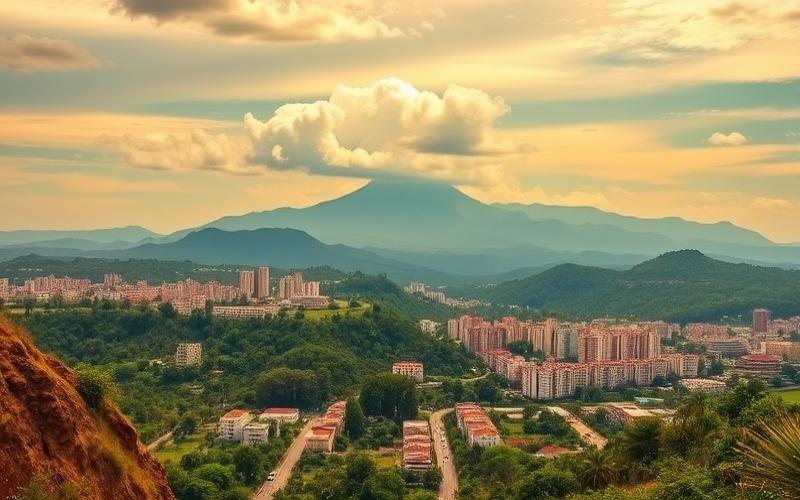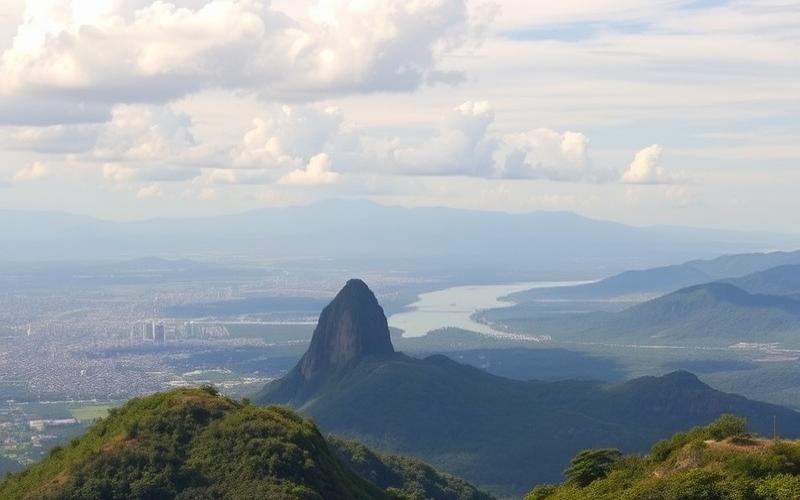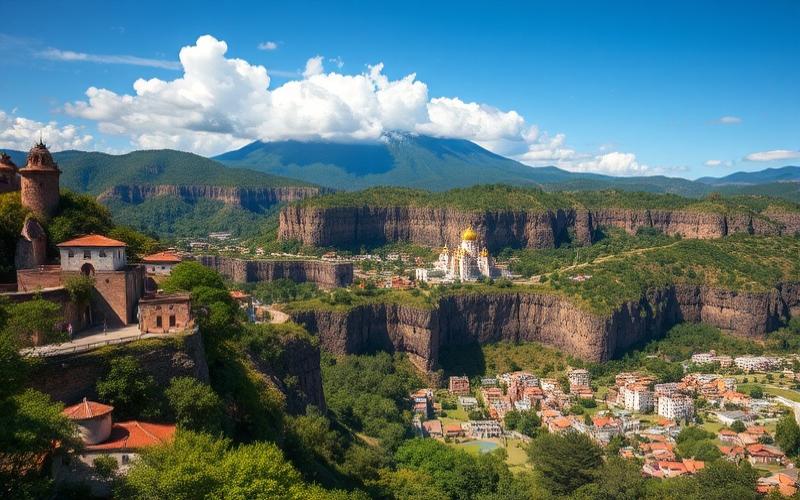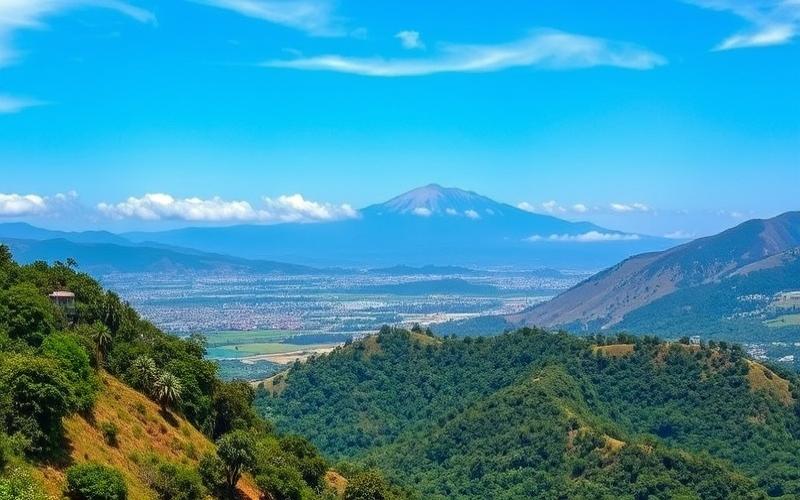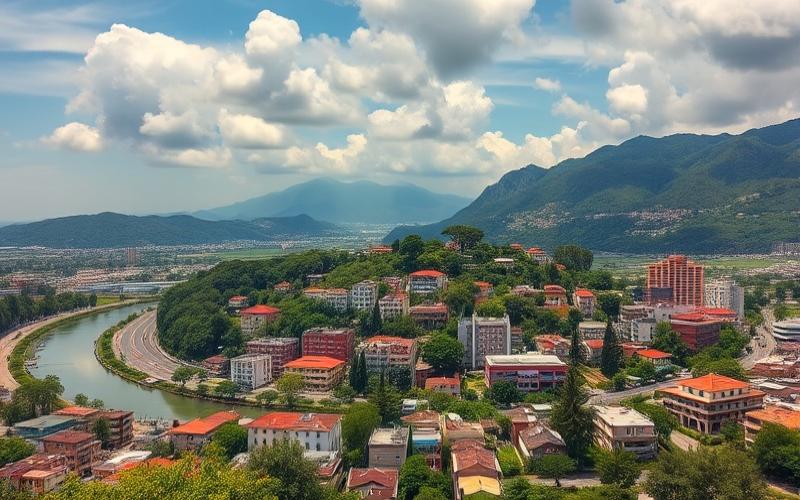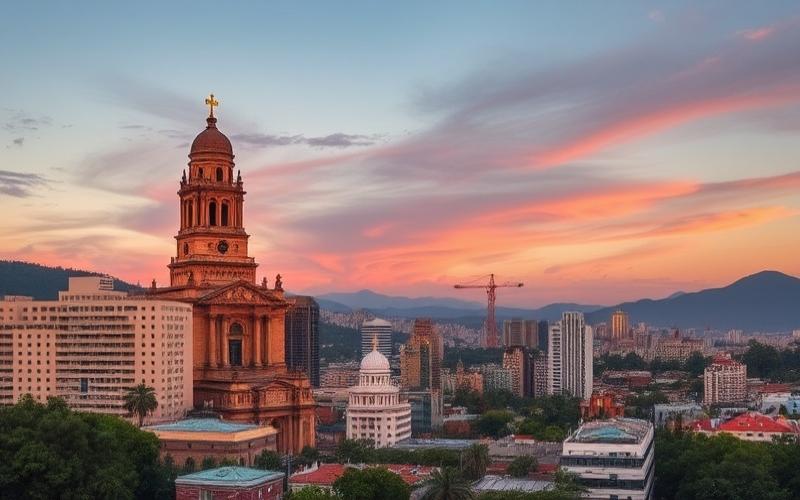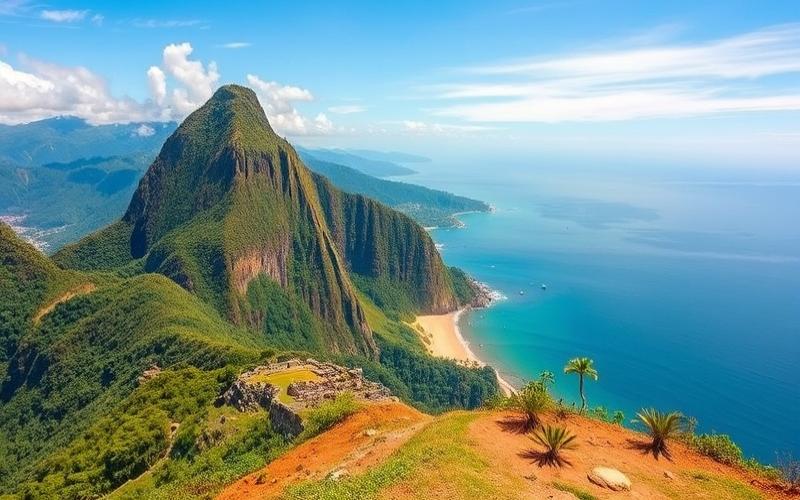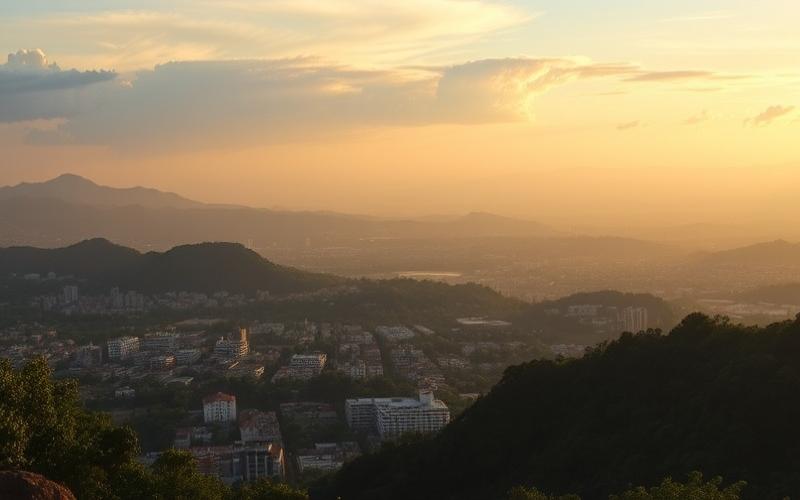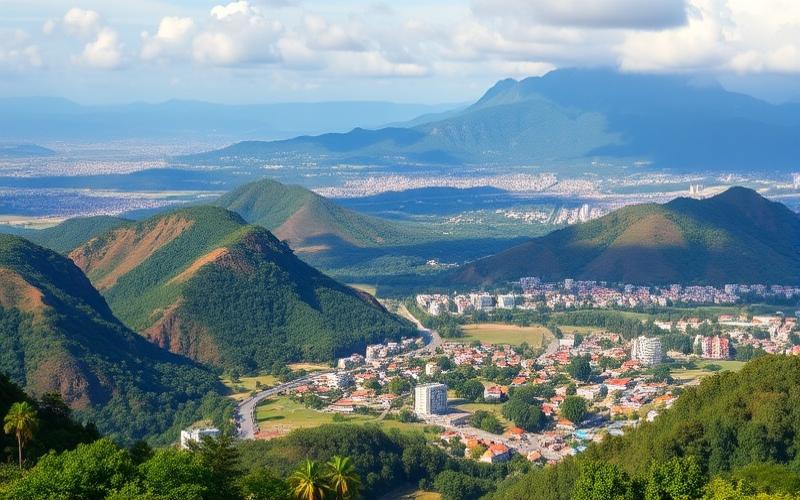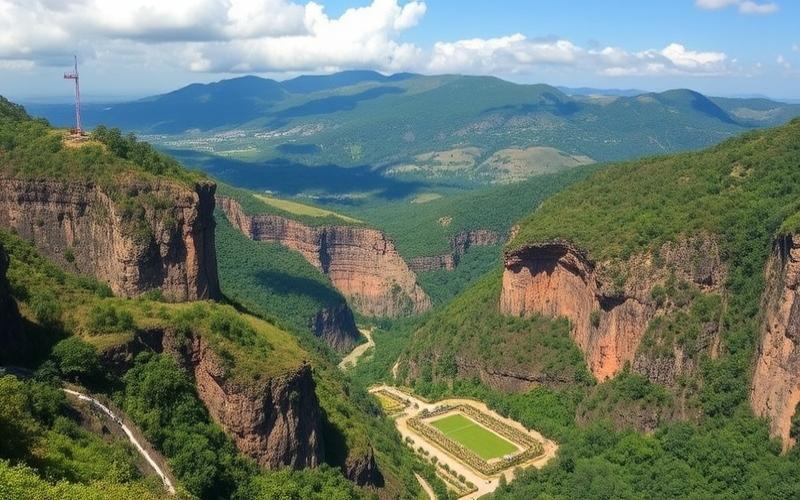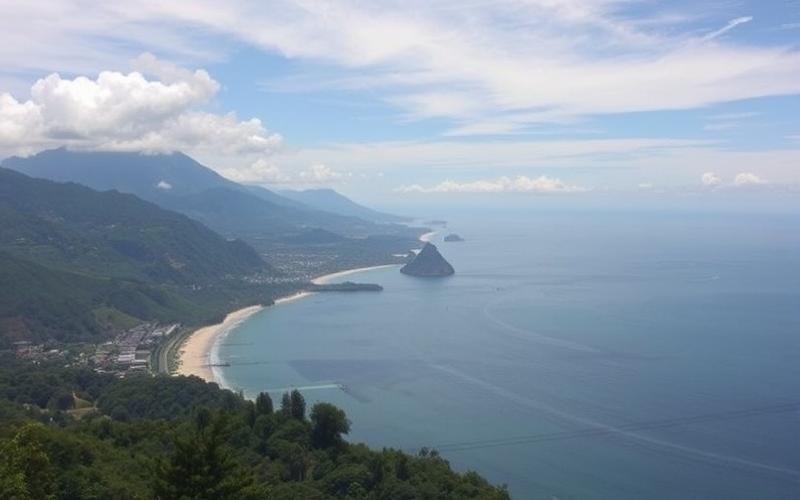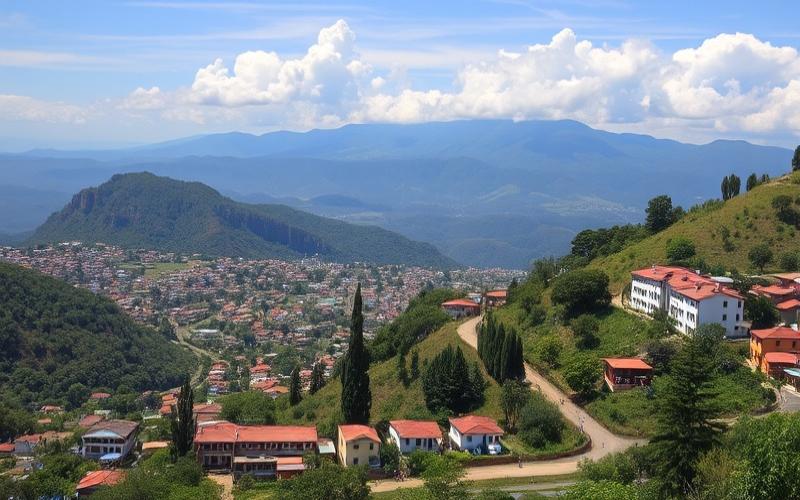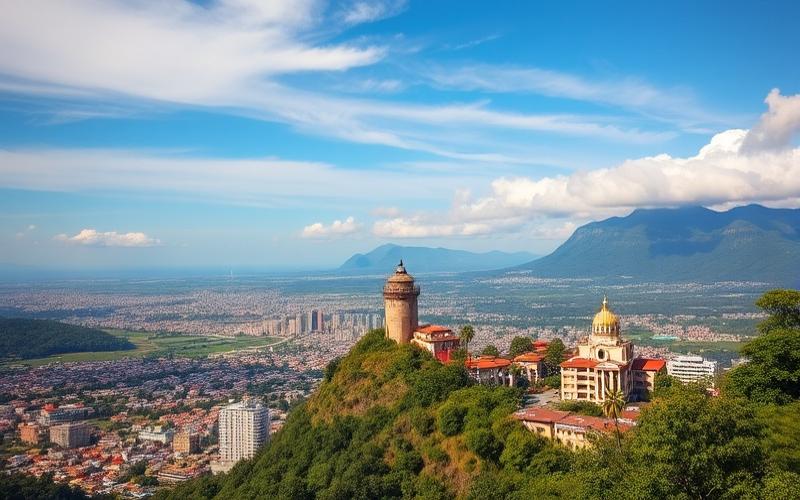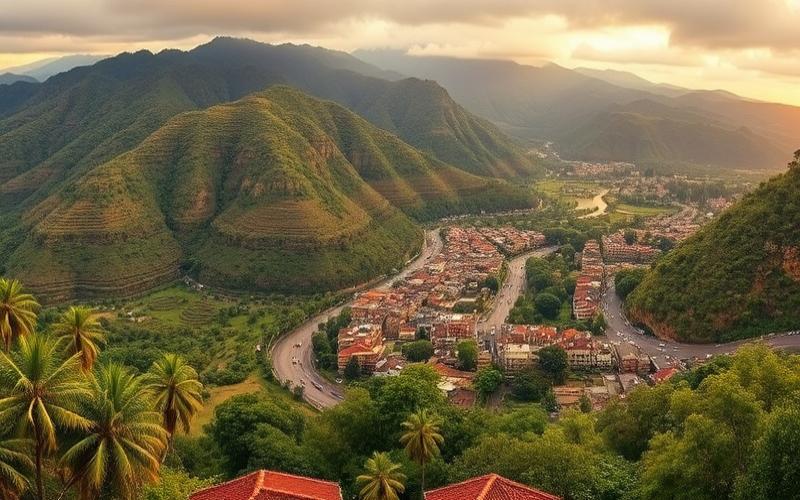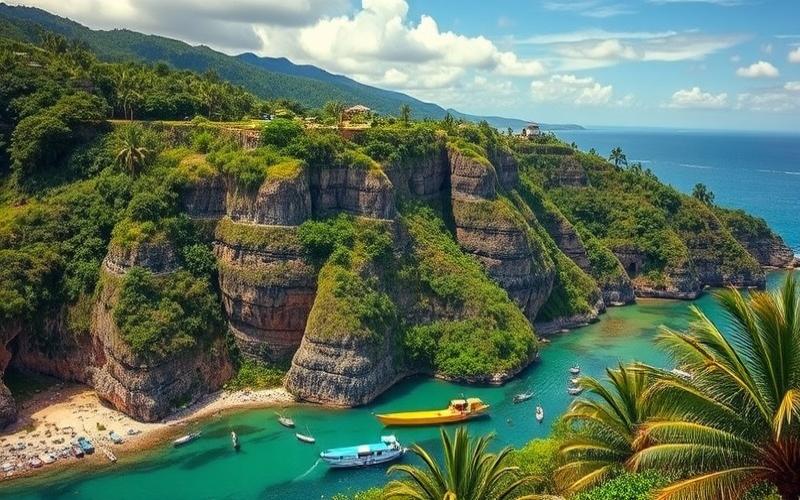
 Published on and written by Cyril Jarnias
Published on and written by Cyril Jarnias
Finding housing in El Salvador can prove to be a real challenge for newcomers, especially in a country where real estate markets vary significantly from one region to another.
To help you navigate this adventure, we’ve prepared a series of practical tips and essential tricks that will allow you to settle peacefully in this multifaceted country.
Whether you’re looking for a modern apartment in the city or a traditional house by the sea, our guide will provide you with the keys to avoid common pitfalls, understand the particularities of the local market, and optimize your search to find the perfect home matching your needs and budget.
Finding Housing in El Salvador: Practical Tips
The real estate market in El Salvador is rapidly changing, driven by improved security, economic reforms, and international appeal, particularly since the adoption of Bitcoin as legal tender. Demand is increasing, especially in certain neighborhoods and coastal areas, which influences prices and availability.
Popular Neighborhoods and Attractive Areas for Expats
| Area / Neighborhood | Main Characteristics |
|---|---|
| San Salvador (capital) | Urban life, modern services, secure neighborhoods, offices, international schools |
| El Zonte (Bitcoin Beach) | Expat community, Bitcoin economy, surfing, beachfront villas and apartments, sharp price increases |
| La Libertad | Beaches, coastal living, tourism, villas, houses, new real estate dynamics |
| Santa Tecla / Antiguo Cuscatlán | Popular residential neighborhoods, enhanced security, proximity to urban amenities |
Available Accommodation Types
- Apartments: Mainly in large cities like San Salvador, suitable for singles, couples, or small households.
- Houses: Available in suburbs or by the sea, ideal for families or those seeking more space.
- Roomshares: Increasingly popular among young professionals and digital nomads, especially in urban neighborhoods.
- Villas: Primarily on the coast (e.g., El Zonte, La Libertad), sought after for tourism or long-term residence.
- Townhouses in secure developments: Recommended for security and included services.
Reliable Platforms and Local Agencies
- Properstar
- Indomio
- Recognized local agencies like Colliers or agencies specialized in welcoming expats
- Specialized Facebook groups for expats in El Salvador
Administrative Procedures and Rental Guarantees
Signing a written lease agreement: Mandatory document specifying duration, rent, payment terms, condition report, rights and obligations of parties.
Frequently requested guarantees:
- Security deposit (often one to two months’ rent)
- Professional or banking references
- Sometimes, a joint guarantee from a local resident
Required documents:
- ID or passport
- Proof of income or employment contract
- Sometimes, proof of residence or visa
Costs Associated with Living and Renting
| Property Type | Price Range (monthly rent) | Observations |
|---|---|---|
| Downtown apartment | $400 to $1,200 USD | Depending on standard and location |
| House in secure suburb | $800 to $2,500 USD | Family homes, developments |
| Beachfront villa (El Zonte) | $1,500 to $5,000 USD | Recent sharp price increases |
| Roomshare | $200 to $600 USD | Depending on neighborhood and number of roommates |
- Additional charges: Water, electricity, internet, maintenance (sometimes not included)
- Property tax: None for tenants; to consider if purchasing
- Regular expenses: Cost of living generally lower than Europe, but varies by lifestyle
Tips for Negotiating or Choosing the Right Time to Move
- Prioritize the low tourist season (outside school holidays and surfing periods) to benefit from more attractive rents, especially on the coast
- Negotiate rent for long-term contracts (over 12 months), or request discounts for advance payment
- Compare offers across multiple platforms and different agencies before committing
- Check the condition report and document any defects in writing before signing
Local Integration and Neighborhood Relations
- Learn some basics of Spanish, the official language, to facilitate daily exchanges
- Participate in community events, local festivals, or neighborhood meetings
- Respect customs: greet neighbors, be discreet about lifestyle habits, avoid noise disturbances
- Learn about local customs (e.g., importance of family, respect for private space)
- Show respect and openness to establish trusting relationships
Settling in El Salvador requires being well-informed about the local market, choosing your neighborhood according to your priorities
Good to know:
In El Salvador, neighborhoods such as Escalón and Santa Elena are favored by expats for their amenities; platforms like Encuentra24 or local agencies such as Propiedades.com are recommended for housing searches. To save on rent, moving during the low season and always negotiating the price can be advantageous strategies.
The Best Neighborhoods for Expats in El Salvador
| Neighborhood | Security | Access to Services | Proximity to International Schools | Entertainment | Housing Types | Cost of Living | Reviews/Testimonials |
|---|---|---|---|---|---|---|---|
| Escalón | High | Shopping centers, clinics, banks | Yes | Restaurants, cafes, nightlife | Apartments, modern houses | High | “Safe neighborhood, very practical, easy integration thanks to the international community.” |
| Santa Tecla | Good | Supermarkets, parks, sports facilities | Yes | Lively local life, markets, bars | Single-family homes, apartments | Medium to high | “Family atmosphere, proximity to mountains and capital, many expats.” |
| Antiguo Cuscatlán | Very high | Embassies, clinics, quality shops | Yes | Cultural centers, restaurants | Residential houses, villas | High | “Everything is within walking distance, quiet, ideal for families and children.” |
| San Benito/Santa Elena | Very high | Educational centers, boutiques, hospitals | Yes | Art galleries, museums, cafes | Villas, upscale apartments | Very high | “Chic neighborhood, many expats, rich social life, maximum security.” |
| El Tunco/La Libertad | Medium to good | Beach proximity, restaurants, bars | No (except local schools) | Surfing, nightlife, festivals | Apart-hotels, cabins, villas | Variable, trending upward | “International vibe, ideal for surfers and digital nomads.” |
Main Characteristics of the Most Sought-After Neighborhoods:
- Security: Neighborhoods like Escalón, Santa Tecla, San Benito, Santa Elena, and Antiguo Cuscatlán are known for their enhanced security, often due to increased police presence and gated communities.
- Access to Services and Infrastructure: Proximity to private hospitals, international schools (especially in San Benito and Antiguo Cuscatlán), modern shopping centers, gyms, green spaces, and public transportation.
- Social Life and Entertainment: Great diversity of restaurants, trendy bars, cultural spaces, and community events, particularly in Escalón and San Benito. The beaches of El Tunco offer a relaxed and festive atmosphere, favored by expat surfing enthusiasts.
- International Community: Strong presence of expats in these neighborhoods, facilitating integration, exchange, and social networking.
Available Housing Types:
- Furnished apartments (1 to 3 bedrooms), often secure and well-equipped.
- Single-family homes, sometimes in secure developments, colonial or modern style.
- Villas with garden and pool in upscale neighborhoods.
- Apart-hotels or serviced residences, suitable for long stays or digital nomads.
Cost of Living (Examples of Monthly Rents):
| Housing Type | City Center (USD/month) | Outskirts (USD/month) |
|---|---|---|
| 1-bedroom apartment | 520 – 900 | 350 – 900 |
| 3-bedroom apartment | 500 – 1,200 | 500 – 1,000 |
| Colonial house (purchase) | 50,000 – 100,000 | – |
| Suburban house (purchase) | 70,000 – 150,000 | – |
Expat Testimonials:
“I chose Escalón for the security and proximity to my work. The atmosphere is cosmopolitan, it’s easy to meet other expats at events or in cafes.”
“Santa Tecla offers a real neighborhood life, while remaining close to the capital. The markets and parks are pleasant, and the foreign community is very welcoming.”
“In Antiguo Cuscatlán, everything is within reach, it’s very practical for a family with young children, especially with the international schools nearby.”
Tips for Integration and Cultural Specificities:
- Take part in local events (markets, parties, festivals) to meet locals and other expats.
- Join sports clubs or cultural associations in the neighborhood.
- Salvadorans are welcoming, but it’s recommended to learn some Spanish basics to facilitate procedures and integration.
- Expat neighborhoods often offer support groups and dedicated social networks.
- It’s common to use a local lawyer for renting or buying property and for administrative procedures.
Key Takeaways:
The neighborhoods favored by expats in El Salvador offer a balance between security, access to modern services, rich social life, and proximity to international schools. Integration is facilitated by the presence of dynamic international communities and many adapted services.
Good to know:
Santa Tecla and Escalón are prized for their security and modern infrastructure, while La Libertad offers direct beach access and a slightly lower cost of living. Newcomers will integrate easily thanks to international schools and numerous entertainment venues available.
What Budget to Plan for Housing in El Salvador
Available Housing Types in El Salvador:
- Apartments: Furnished or unfurnished, 1 to 3 bedrooms, often located downtown or in suburbs, with equipped kitchen and internet access.
- Single-family homes: Colonial, modern, or suburban styles, suitable for families or those seeking more space.
- Roomshares: Common practice, especially among students, young professionals, or expats wanting to reduce costs.
- Villas and cabins: Often located by the sea or in mountains, ideal for beach or nature lifestyle.
- Tourist residences/apart-hotels: Flexible solutions for medium or long stays, with integrated services.
- Rentals for digital nomads: Accommodations with workspaces and fast internet connection.
Estimated Average Monthly Costs (Rent) by Location:
| Housing Type | San Salvador (center) | Outskirts/Other large cities | Rural/beach areas |
|---|---|---|---|
| 1-bedroom apartment | 520 – 900 USD | 350 – 900 USD | 250 – 500 USD |
| 3-bedroom apartment | 500 – 1,200 USD | 500 – 1,000 USD | 350 – 700 USD |
| Single-family house (purchase) | 50,000 – 150,000 USD | 40,000 – 100,000 USD | 20,000 – 70,000 USD |
| Roomshare (per person) | 200 – 400 USD | 150 – 300 USD | 100 – 250 USD |
Additional Expenses to Plan For:
- Utilities (water, electricity, gas): $50 to $120/month for an average apartment.
- High-speed internet: $25 to $50/month.
- Rental charges (maintenance, security, trash, etc.): $30 to $80/month depending on residence and amenities.
- Furniture and appliances: Often included in furnished rentals; to plan for otherwise.
Options to Save on Housing:
- Rent negotiation: Prices aren’t always fixed, especially for long-term rentals or outside high-demand neighborhoods.
- Location choice: Moving away from San Salvador center or choosing secondary cities (Santa Ana, La Libertad) allows access to more affordable rents.
- Roomsharing: Significantly reduces charges and rent costs.
- Direct rental from owners: Avoids agency fees and facilitates negotiation.
- Selection of all-inclusive housing: Some offers include internet and utilities, simplifying budget management.
Key Takeaways:
- Housing costs vary significantly between San Salvador (more expensive, especially in secure and sought-after neighborhoods) and rural or beach areas (less costly, but sometimes less equipped).
- Charges and services can represent a significant expense item, to include in the overall budget.
- Flexibility (roomsharing, negotiation, neighborhood choice) remains an asset for optimizing your housing budget in El Salvador.
The choice of housing type will depend on budget, space needs, desired lifestyle, and proximity to amenities or workplaces.
Good to know:
In San Salvador, an apartment costs on average $500 per month, while a house can reach $800, and a roomshare around $250; in rural areas, these prices can be up to 50% lower. To save, consider negotiating the rent and sharing charges, which often include water, electricity, and internet, with your roommates.
Disclaimer: The information provided on this website is for informational purposes only and does not constitute financial, legal, or professional advice. We encourage you to consult qualified experts before making any investment, real estate, or expatriation decisions. Although we strive to maintain up-to-date and accurate information, we do not guarantee the completeness, accuracy, or timeliness of the proposed content. As investment and expatriation involve risks, we disclaim any liability for potential losses or damages arising from the use of this site. Your use of this site confirms your acceptance of these terms and your understanding of the associated risks.


